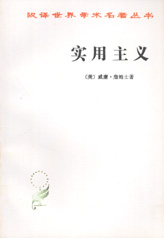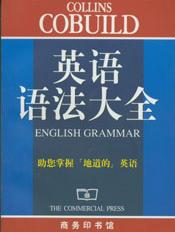牛津实用英语语法-第73部分
按键盘上方向键 ← 或 → 可快速上下翻页,按键盘上的 Enter 键可回到本书目录页,按键盘上方向键 ↑ 可回到本页顶部!
————未阅读完?加入书签已便下次继续阅读!
他建议我脱下大衣。(参见第287节。)
‘Would/Could you show me your passport,please?’he said.
他说:“请出示您的护照。”相当于:
He asked me to show him my passport.
他要我向他出示护照。
He asked me for/He asked to see my passport.
他要求看我的护照。
‘You might post some letters for me,’said my boss.
我的老板说:“不知你能否给我寄几封信?”相当于:
My boss asked me to post some letters for him.
我的老板请我给他寄几封信。
‘If you’d just sign the register,’said the receptionist.
接待员说:“请在登记本上签名。”相当于:
The receptionist asked him to sign the register.
接待员要他在登记本上签名。
‘Do sit down,’said my hostess.
我的女主人说:“请坐下。”相当于:
My hostess asked/invited me to sit down.
我的女主人请我坐下。
‘Please,please don’t take any risks,’said his wife.
他妻子说:“请千万别冒险。”相当于:
His wife begged/implored him not to take any risks.
他妻子恳求他别冒险。
‘Forget all about this young man,’said her parents,‘don’t see him again or answer his letters.’
“把那个男孩子全忘了吧,”她父母说,“别再见他,也别再回信了。”相当于:
Her parents ordered her to forget all about the young man and told her not to see him again or answer his letters.
她的父母要求她把那个男孩子全忘了,而且告诉她别再见他,也别再给他回信。
She was ordered to forget all about the young man and forbidden to see him again or answer his letters.
她被要求把那个男孩子全忘了,而且被禁止见那个男孩子或给他回信。(被动结构)
‘Don’t forget to order the wine,’said Mrs Pitt.
皮特夫人说:“别忘了订购酒。”相当于:
Mrs Pitt reminded her husband to order the wine.
皮特夫人提醒她丈夫别忘了订购酒。
‘Try again,’said Ann’s friends encouragingly.
安的朋友们鼓励地说:“再试试看。”相当于:
Ann’s friends encouraged her to try again.
安的朋友们鼓励她再试一次。
‘Go on,apply for the job,’said Jack.
杰克说:“去申请这个工作吧。”相当于:
Jack urged/encouraged me to apply for the job.
杰克敦促/鼓励我去申请这个工作。
‘You had better not leave your car unlocked,’said my friends,‘there’s been a lot of stealing from cars.’
“你最好别忘了锁车门,”我的朋友说,“已经发生了许多起偷盗车内物品的事件了。”相当于:
My friends warned me not to leave my car unlocked as there had been a lot of stealing from cars.
我的朋友警告我不要忘了锁车门,因为已发生了许多起车内物品被盗事件了。
will you。。。类型的句子通常被看做请求,因此可以用 ask进行转述:
‘Will all persons not travelling please go ashore,’he said. 他说:“不是随船旅行的人上岸。”相当于:
He asked all persons not travelling to go ashore.
他要求所有不是随船旅行的人上岸。
但如果 will you句式的句子是用严厉或烦躁的口气说出,而且
省略了please,则可用tell或order进行转述:
‘Will you be quiet!/Be quiet,will you!’he said.
他说:“请安静!/请安静,好吗?”相当于:
He told/ordered us to be quiet.
他命令我们安静。
?
'Amber demo'
321间接命令的其他表示方法
?
Asay/tell+宾语+be+不定式:
He said/told me that I was to wait.
他说我得等着。
这种结构可以代替tell+不定式结构,因此:
He said,‘Don’t open the door.’
他说:“别开门。”
可转述为:
He told me not to open the door.
他让我别开门。
He said that I wasn’t to open the door.
他叫我不要开门。
be+不定式结构特别常用于下列场合:
1如命令是由动词现在式引导的:
He says,‘Meet me at the station.’
他说:“在车站接我。”相当于:
He says that we are to meet him at the station.
他让我们到车站去接他。
(在这里使用 He tells us to meet him。。。形式的可能性要小得多。)
2如命令前有一个从句时(一般为时间从句或条件从句):
He said,‘If she leaves the house follow her.’
他说:“如果她离开这所房子,就跟着她。”
He said that if she left the house I was to follow her.
他说如果她离开这所房子,我就得跟着她。
He told me to follow her if she left the house(他让我在她离开这所房子时跟着她)同样也是可以的。但需注意,如果在这里用 tell+不定式结构,就必须首先改变从句的位置,将命令部分放在前面。有时这会使一个句子变得不顺或难解。如一个表示请求的句子If you see Ann tell her to ring me(如果你看见安,让她给我打个电话)可转述为He told me to tell Ann to ring him if I saw her。但为了避免不顺或难解,这种表示请求的句子只能用be+不定式结构来进行转述:
He said that if I saw Ann I was to tell her to ring him.
他说如果我见到安,我得告诉她给他打个电话。
B say/tell(+ that)+主语+should
1 ay/tell与 should结构连用,一般表示劝告而并不是命令:
He said,‘If your brakes are bad don’t drive so fast.’
他说:“如果你的刹车不灵,就别开得这么快。”相当于:
He said/told me that if my brakes were bad I shouldn’t drive so fast.
他嘱咐我如果我的刹车不灵,就别开得那么快。
He advised me not to drive so fast if my brakes were bad.
他忠告我如果我的刹车不灵,就别开那么快。(注意:这里的从句位置的变化与上面tell+不定式结构相同。)
2表示劝告也可以用advise,remend和urge+that…should结构。这种结构的被动式形式用得更为广泛(参见第302节E):
‘I advise cancelling the meeting,’he said.
他说:“我建议取消会议。”
He advised that the meeting should be cancelled.
他建议会议应予取消。
3 mand和order也可以与should或被动式连用:
‘Evacuate the area!’ordered the superintendent.
警务长命令说:“所有人员撤出这一地区!”相当于:
The superintendent ordered that everyone should leave the area/ordered that the area should be evacuated/ordered the area to be evacuated.
警务长命令所有人员撤出该地区/撤出该地区。
4 注意:如第320节所示,使用宾语+不定式结构表示间接命令时,通常是在对受命者直接发令。但像上面 A中所示用 be+不定式结构,或像上面B3中所示用should结构来表示命令时,那么就不一定是对受命者直接发令了,可能是由第三者把命令传达给受命者。
?
'Amber demo'
322 let’s,let us,let him/them用于间接引语
?
A let’s
1 let’s通常表示建议,在间接引语中用动词suggest转述:
He said,‘Let’s leave the case at the station.’
他说:“我们把箱子存在车站吧!”
可转述为:
He suggested leaving the case at the station./He suggested that they/we should leave the case at the station.
他建议他们/我们把箱子存在车站。
(关于与suggest连用的结构,参见第289节。)
He said,‘Let’s stop now and finish it later.’
他说:“现在停下来,以后再完成它。”
可转述为:
He suggested stopping then and finishing it later./He suggested that they/we should stop then and finish it later.
他当时建议(他们/我们)那时先停下来,以后再来完成。
否定式也是这样:
He said,‘Let’s not say anything about it till we hear the facts.’
他说:“在我们没有听到事情的真相之前,对这件事什么话也别说。”相当于:
He suggested not saying anything/saying nothing about it till they heard the facts./He suggested that they shouldn’t say anything till they heard the facts.
他建议他们在没有听到事实真相之前什么都别说。
?
但如果单独使用let’s not对一个肯定的建议做出答复,那么在转述时常用下列短语:opposed the idea/was against it/ob-jected。因此:
‘Let’s sell the house,’said Tom.
汤姆说:“我们把这房子卖了吧。”
‘Let’s not,’said Ann.
安说:“我们别卖。”
可转述为:
Tom suggested selling the house but Ann was against it.
汤姆建议把房子卖了,但是安表示反对。
(关于其他表示建议的形式,参见第289节。)
2 let’s/let us有时表示对一种行动的号召,这时通常由urge/ad- vise+宾语+不定式结构表示(另参见第 320节):
The strike leader said,‘Let’s show the bosses that we are united.’
罢工领导人说:“我们给老板看看我们是团结一致的。”相当于:
The strike leader urged the workers to show the bosses that they were united.
罢工领导人鼓动工人们给老板们看看他们是团结一致的。
B let him/them
1从理论上讲let him/them表示命令。但实际上说话人对受命人时常并没有发号施令的权威:
‘It’s not my business,’said the postman.‘Let the government do some- thing about it.’
“这事与我无关。”邮递员说,“叫政府去想办法吧。”
这里说话人并不是在发号施令,而只是表示责任在谁身上,因此这类句子通常由ought/should来转述:
He said that it wasn’t his business and that the government ought to/ should do something about it.
他说这不关他的事,而是政府应该对这事想点办法。
2但有时let him/them表示真正的命令,在转述时常用say+be+不定式结构(参见第321节):
‘Let the boys clear up this mess,’said the headmaster.
校长说:“这些脏乱的东西该由男孩子们去收拾。”相当于:
The headmaster said that the boys were to clear up the mess.
校长说那些脏乱的东西让男孩子们去收拾。
‘Let the guards






